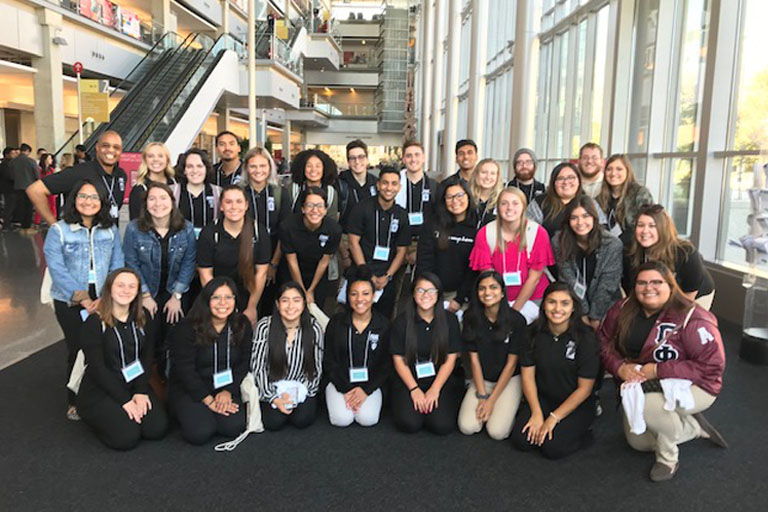For the seventeenth year, Indiana University-Purdue University Indianapolis (IU Indianapolis) hosted their annual National Mentorship Symposium on October 5th which allowed student mentors representing colleges and universities from across the country to showcase and improve their leadership and developmental skills in relation to peer mentorship. “The conference has grown so much over the years,” said Patrick Smith, executive director of Indiana University’s Mentoring Services and Leadership Development office, a program supported by the Office of the Vice President for Diversity, Equity, and Multicultural Affairs. “There was approximately 150-200 people when I first started going to now over 500 participants from around the world. It’s an amazing opportunity for student mentors to learn the skills they need to not only become better student mentors, but better leaders overall.”
29 IU students from the Faculty and Staff for Student Excellence (FASE) program attended the day long symposium. Hosted from 9 a.m to 4 p.m the mentors explored workshops and networked with other students from around the world in an attempt to gain a better understanding of what it means to be a student mentor. Through networking events, keynote speakers, and workshops, the National Mentorship Symposium creates a unique opportunity for student mentors to hone their mentoring skills while providing administrators an opportunity to learn from other, similar programs.
“This event can be utilized as a platform to position faculty, staff, and administrators to either operate mentoring programs more effectively or how to develop stronger student leaders,” Smith said. “For the students themselves it’s also an opportunity to validate what it is they do in terms of their responsibilities as mentors. By engaging and networking with other mentors from across the country FASE students gain an idea of what other mentoring programs are doing in regards to best practices.”
Originally developed as a way for students to gather and share their mentoring experiences, the symposium has since grown into an international event with schools as far away as Tokyo attending to gain and share their various mentoring techniques, strategies, and approaches to the discipline.
“It provides professional development opportunity for student leaders and peer mentors to develop their skill set and identify methods employed by other programs that can be brought back to enhance our mentoring practice. What can we implement programmatically that will increase the effectiveness of our services?”
To further explore the variations each school brought to the Symposium, the event conducted a poster contest where participating schools created educational posters describing their university’s mentoring program where the winning poster—as voted on by the students themselves—would be honored at the end of the conference. The FASE display was selected as the top poster of the mentoring symposium.
“We’re very proud of our students,” Smith said. “And what really gets me is that this was an acknowledgment not from the adults who attended the event, but from their fellow peers. It means a lot when someone—especially a peer—looks at the work you’ve done and recognizes all the effort put into it.”


